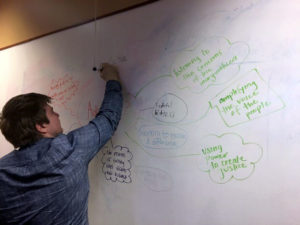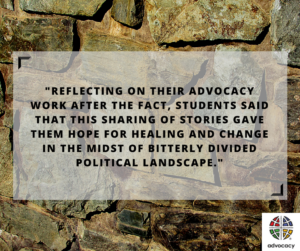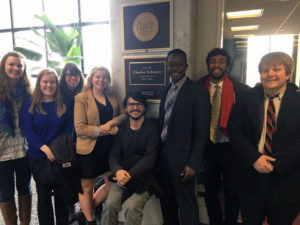This mini-toolkit of worship resources was created by the Minneapolis Area Synod’s EcoFaith Energy Campaign Team. This team focuses on renewable energy & power from perspectives of stewardship, creation care, advocacy, sustainability, organizing, vocation, and more. The team writes, “As we approach Pentecost, a festival of Spirit, wind, and fire, there is an opportunity for all of us to contemplate where God is in our current system of energy, and explore—in big and small ways—how we can all better care for God’s gift of power, the thing that allows our modern society to function. You are invited to consider the following resources and utilize them in whatever ways resonate with your own faith community.”
Prayers
Consider including the following petition in your Prayers of Intercession
God of power, your Spirit comes to the people and sets them in motion. Move us into love, service, justice, and possibility. Help us to better care for and steward the ways in which our world moves.
A Prayer of the Day for Pentecost Sunday:
Creator God, We give you thanks for the gift of the Spirit, poured out for the whole world.
Your Spirit moved over the people on Pentecost like a mighty rushing wind, setting their hearts on fire with your love. Send that same Spirit to us today, empowering us to care for the rushing wind, the shining sun, and the mighty waters—your gifts of creation that allow us to grow, learn, and thrive.
Let us join with our communities, political leaders, and _____________ (name the energy provider for your community) to ensure that the energy we use is renewably sourced, equitably distributed, and safely utilized.
Amen.
Scripture & Sermon Ideas
In addition to the Pentecost text (Acts 2), consider reading Genesis 1:1-5, John 3:1-10, Mark 4:39-41, Job 26:7-14, Psalm 104:1-4, Nahum 1:3, Psalm 29:3-9 or any text that explores wind, fire, water, or care for creation.
A few sermon thoughts:
—In order to capture the power of the wind, you need to put the windmill where the wind actually blows. So it is with the Spirit—the church is called to be (or follow) where the spirit moves.
—On Pentecost, the Spirit blew over the people, inciting growth of the early church. Our church today is similarly powered by the Spirit. Our society is powered by energy. Are there similarities in how we steward our engagement with the Spirit and energy sourcing in sustainable ways?
—How might the power grid from which we get our electricity be similar to the network of an interconnected, Spirit-led Church?
—What difference does it make when we source our energy and enthusiasm from a sustaining Spirit verses earthly means? Might that impact how we see sourcing our energy for powering the world?
—Fire and wind are present in the Creation story, sometimes show up as purifying agents, lead to change, bring power, and so much more. How are they showing up in our text? How do we steward these holy gifts in our world?
Hymns & Songs
Spirit of Gentleness (ELW 396), God of Tempest, God of Whirlwind (ELW 400), O Living Breath of God (ELW 407), Let Streams of Living Justice (ELW 710), Let All Things Now Living (ELW 881), Take My Life, That I May Be (ELW 685), Canticle of the Turning (ELW 723), Light the Fire (Bill Maxwell), This Little Light of Mine (ELW 677)
Theological Resources
Lutherans Restoring Creation www.lutheransrestoringcreation.org Check out the “Energy Steward Initiative” under Programs
Interfaith Power and Light www.mnipl.org Books
“The Green Bible”- Harper One
“The Green Bible Devotional: A Book of Daily Readings”- Harper One
“Climate Justice: Ethics, Energy and Public Policy”- James Martin-Schramm
“Eco-Reformation: Grace and Hope for a Planet in Peril”- Lisa Dahill and James Martin-Schramm “Earth-Honoring Faith: Religious Ethics in a New Key”- Larry Rassmussen
“A Faith Encompassing All Creation: Addressing Commonly Asked Questions about Christian Care for the Environment”- Edited by Tripp York and Andy Alexis-Baker


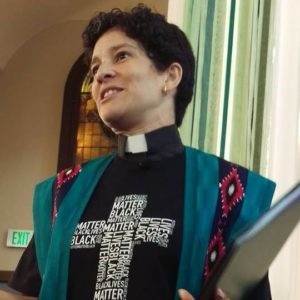
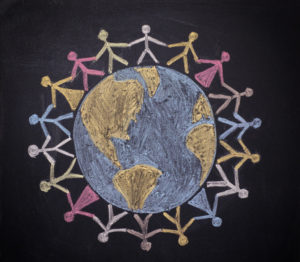
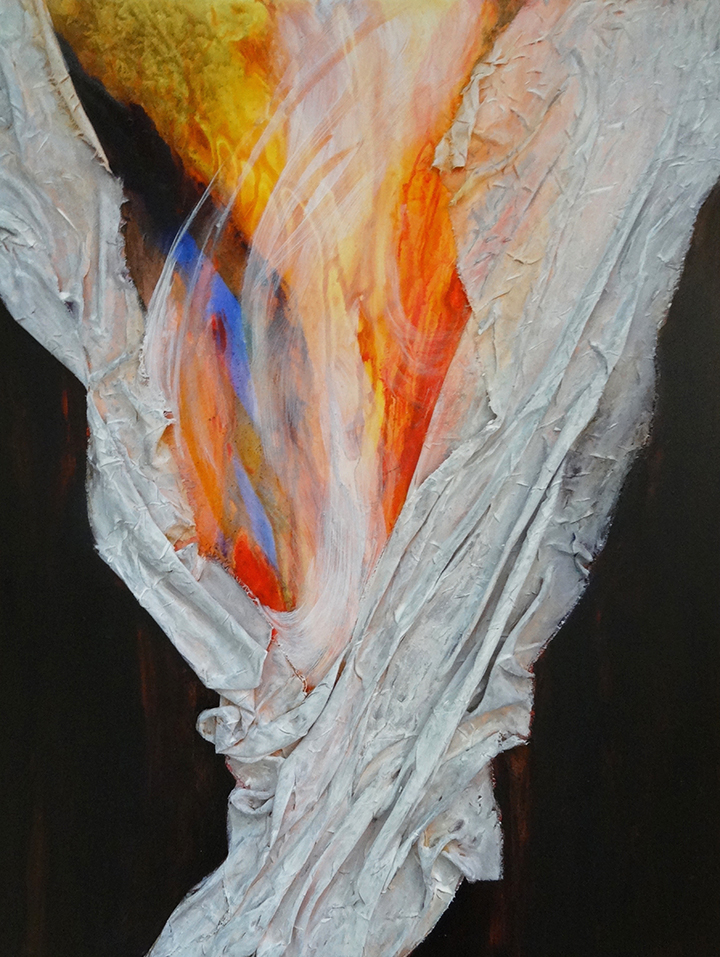
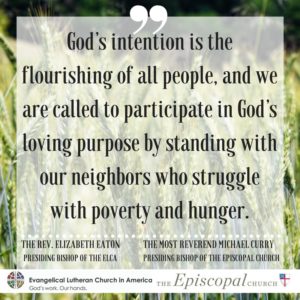

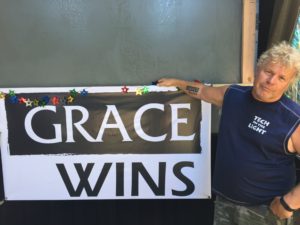

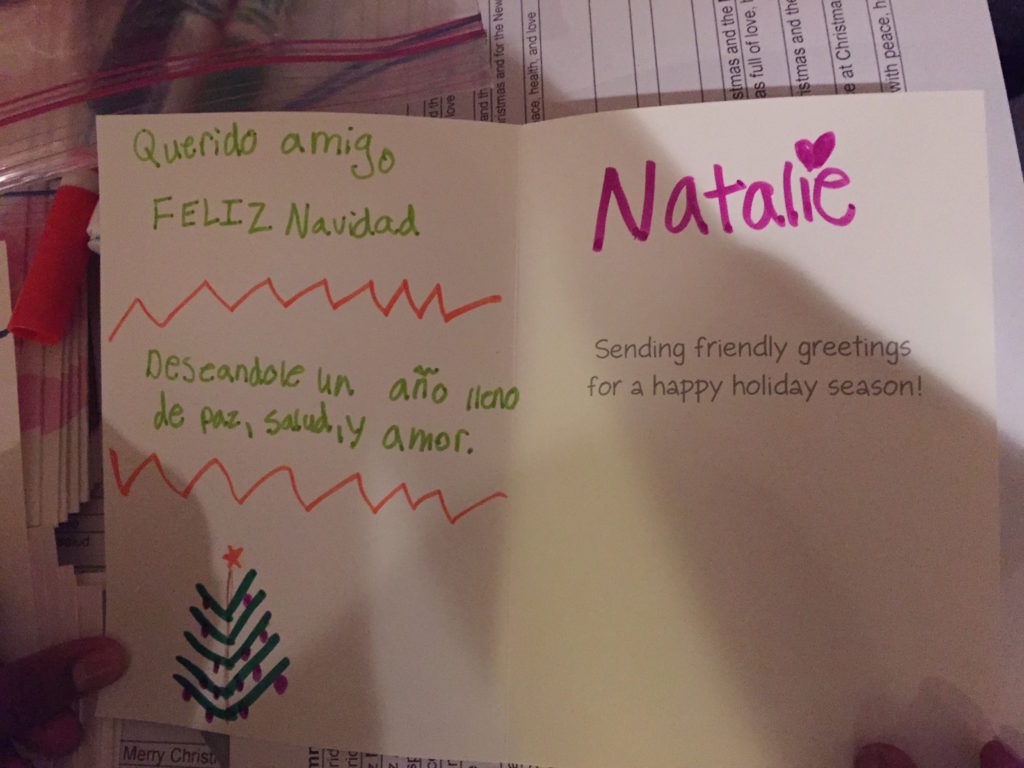 First, we practice Advocacy as offering. We often take a minute during our offering time to speak about the latest updates and action alerts from ELCA Advocacy. We have letters and computers available on site for those who want to write or take 20-30 seconds to fill out the action alerts online and send them at any point throughout our gathering.
First, we practice Advocacy as offering. We often take a minute during our offering time to speak about the latest updates and action alerts from ELCA Advocacy. We have letters and computers available on site for those who want to write or take 20-30 seconds to fill out the action alerts online and send them at any point throughout our gathering.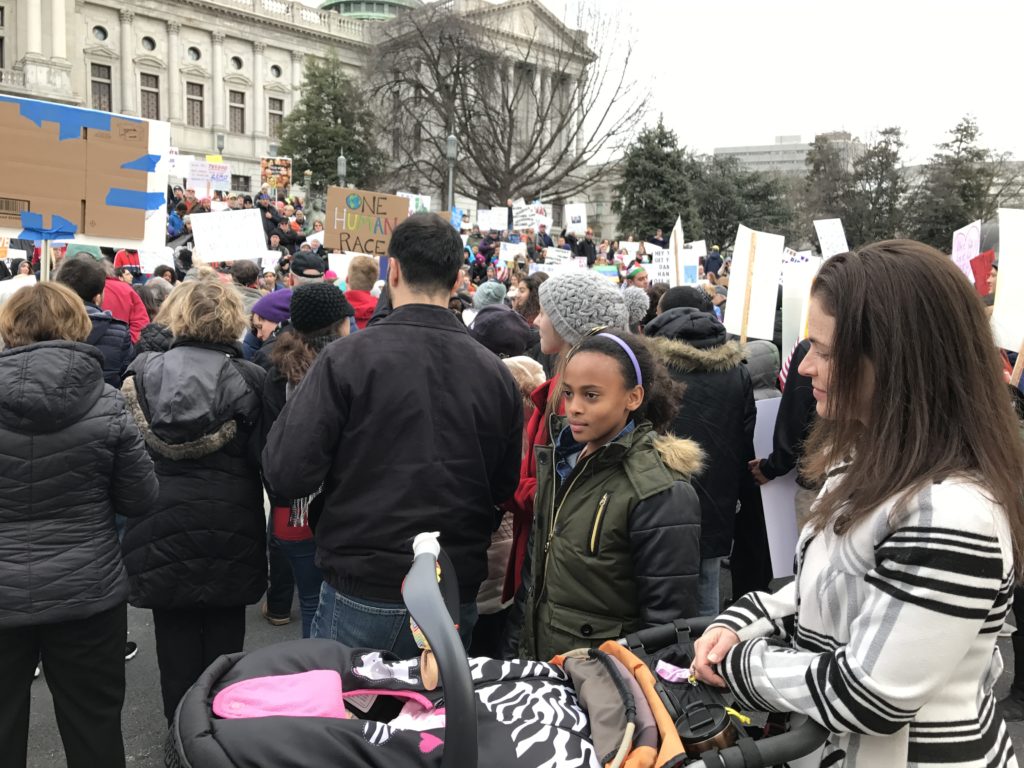 Today, our first gathered missional community has now multiplied into three missional communities that all gather in public places outside of church buildings. Though these communities appear very different from one another, the expressions of these Communities of Hope are similar focusing on advocacy as a means of loving our neighbors.
Today, our first gathered missional community has now multiplied into three missional communities that all gather in public places outside of church buildings. Though these communities appear very different from one another, the expressions of these Communities of Hope are similar focusing on advocacy as a means of loving our neighbors.